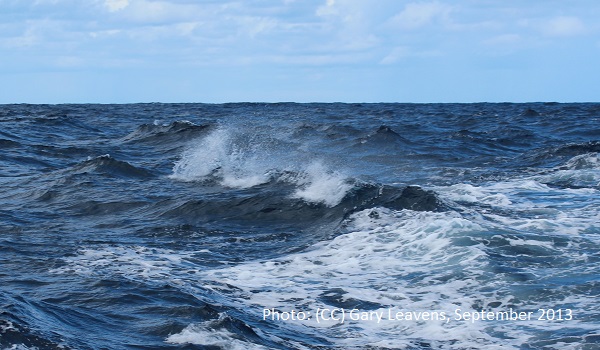The transfer of some 7,000 people stuck on the Canary Islands and currently hosted in hotels to six camps is delayed until mid-February amid growing tension in local communities. More than 1,700 cases of age-determination are pending as Canary Island government representative declares a humanitarian emergency over the care of unaccompanied children. According to the Spanish Ombudsman the notorious and now dismantled Arguineguín Pier held 80 people infected with COVID-19 at the time of his unannounced visit in mid-November.
The transfer of 7,000 people from hotel accommodation to six camps in Tenerife, Gran Canaria, and Fuerteventura originally set for the end of 2020 has been further delayed. The Secretariat of State for Migration noted that delays were the result of issues outside of its department, and have declined to put forward a new deadline. According to media a combination of rainy weather, friction between local and national authorities, bureaucracy and red tape has delayed the establishment of the camps as well as the transfer of people. The Spanish Minister of Inclusion, Social Security and Migration, José Luis Escrivá estimates that all six centres would be ready and transfers underway by 15 February. The Minister further noted that the majority of people hosted on the Canary Islands can be returned through readmission agreements although the pace is slow due to the COVID-19 pandemic, while vulnerable people in need of protection could be transferred to the Spanish mainland. According to the minister, over 2,000 have already been transferred to facilities on the mainland.
Amid delays, tensions are on the rise in Gran Canaria where many people arriving have been forced to sleep rough on the streets. Radical groups have spread death threats and attempted to organise hunts for migrants in the municipalities of Mogán and San Bartolomé de Tirajana. Several violent incidents have already occurred in the Las Rehoy neighbourhood. The local Police Union as well as civil society organisations warn that the tension and violence is provoked by the large number of people blocked on the islands.
According to the Directorate-General for child and family protection 1,727 unaccompanied youth are awaiting the first phase of age determination by bone testing and 65 the second phase of dental testing. Around 100 unaccompanied children currently held in adult facilities without access to schooling are set to be transferred to child facilities run by the Government of the Canary Islands over the next weeks. The opposite could be the reality for hundreds of youth supposed to be children and currently guarded by the Ministry of Social Rights who could be placed in adult facilities. The Vice-Counsel for Social Rights of the Government of the Canary Islands, Gemma Martínez states that the Canary Islands are facing a humanitarian crisis regarding the care of unaccompanied children. Martínez has met local and national authorities, as well as the cabinet of the European Commissioner for Home Affairs Ylva Johansson to urge the transfer of children to the mainland and the increased support and responsibility from the EU. An appeal from the authorities of Canary Islands to the central government for the transfer of 500 unaccompanied children to the mainland remains unanswered despite several offers from municipalities to receive 150 of the minors.
The Spanish Ombudsman, Francisco Fernández Marugán, warned of human rights violations at the makeshift camp at Arguineguín pier prior to its dismantling. Now his report reveals that 80 of its residents were COVID-19 positive at the time of his visit in November, while held under overcrowded conditions and beyond legal time limits. Despite measures of mandatory isolation of people testing positive after arrival and not in need of hospitalisation introduced by the Health Ministry of the Canary Islands after Marugán’s visit to the camp at Arguineguín Pier, this mistake is allegedly repeated in Barranco Seco camp in Las Palmas that replaced the former. Reacting to complaints the Ombudsman has requested information from local and national authorities.
For further information:
- ECRE, Atlantic Route: Arrivals Slowing as Death Toll Continues, Detainees Held Beyond Legal Limit, Government Under Fire for Slow Response, January 2021
- ECRE, Atlantic Route: Arrivals and Loss Of Life Continue, Restrictions of Departures to Mainland, January 2021
- ECRE, Atlantic Route: Deadly Incidents and Concern over Conditions for Children, January 2021
- ECRE, Atlantic Route: Pier of Shame Dismantled after Ombudsman Denounces Human Rights Violations, December 2020
- ECRE, Atlantic Route: Containment, Return, Deterrence – Spain’s Response to Increased Sea Arrivals, November 2020
- ECRE, Atlantic Route: Alarm over Inadequate Reception as Arrivals to the Canary Islands Continue to Increase, November 2020
- ECRE, Atlantic Route: Arrivals Continue, Miserable Conditions at Arguineguín Pier, Ombudsman Investigating Lack of Legal Assistance, November 2020
- ECRE, Atlantic Route: People Face Death at Sea and Miserable Conditions upon Arrival in the Canary Islands, High Prosecutor’s Office Prohibits Separation of Children, October 2020
- ECRE, Atlantic Route: Arrivals in Canary Islands Continue to Rise, more than 1,000 People Cramped at Arguineguín Pier, Children Separated from their Parents for Months in Order to Prove Kinship, October 2020
- ECRE, Spain: Exponential Increase in Arrivals in the Canary Islands, Capacity Stretched, Intense Rescue Activity in Spanish Waters, October 2020
- ECRE, Spain: Surge in Arrivals via the Atlantic Route, Devastating Conditions in Melilla Continue, People Rescued South of Granada, September 2020
- AIDA, AIDA 2019 update: Spain*, April 2020
- ECRE, Op-ed: Cooperation with Morocco in the EU’s African Border – a laboratory of externalization, January 2018
Photo: (CC) Gary Leavens, September 2013
This article appeared in the ECRE Weekly Bulletin. You can subscribe to the Weekly Bulletin here.

